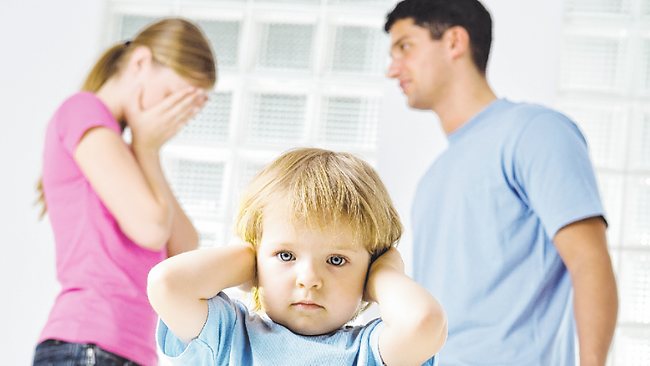

They can become hypervigilant, tracking signs for a conflict breaking out.

But studies since the 1980s have demonstrated the opposite: Amid chronic marital conflict, children may become increasingly sensitive to the episodes. Early thinking suggested that if parents bickered a lot, children would get used to it and become desensitized. They compound and accumulate, stacking up and eroding relationships. Small conflicts may remain unresolved for lengthy periods, festering, creating tension, and harming children’s mental health.ĭamage is done not by a single or even a few instances, but by chronic interactions of these kinds. Friction can be caused by one parent pursuing the dispute through continual nagging and the other parent withdrawing.

Some couples focus their attention not on collaborating or solving the problem, but on insults, verbal anger, or non-verbal expressions of anger. How parents tackle such apparently minor (and major) differences matters to children’s mental health. “It’s about how parents tackle commonplace, sometimes tiny disagreements that are natural, inevitable occurrences in any intimate relationship.” Smoldering battles lead to hypervigilance Eventually, they acknowledged that for nearly three decades, they had disagreed about whether the peanut butter should be kept in the pantry or the refrigerator. A couple from one of our studies was adamant that they had never had a conflict in 27 years of marriage. Many parents don’t see eye to eye on issues related to work-life balance – they may argue about who is spending enough time on child care. It’s about how parents tackle commonplace, sometimes tiny disagreements that all couples can expect to have – conflicts that are natural, inevitable occurrences in any intimate relationship.Ī disagreement might be about politics. Most people recognize that engaging in yelling matches, throwing things, and acting in ways that are physically aggressive are unhealthy conflict behaviors that can harm children’s development. Reducing this type of chronic interparental conflict and tension helps children feel the emotional security they need for robust mental health – not only when they are young but also as adults. And such behavior may help explain enduring mental health problems for many children, including depression, anxiety, poor sleep, and aggressive behavior. Low-level, poorly resolved conflict between parents – bickering, giving the cold shoulder, eye-rolling – can seem inconsequential. "Given that genetic inheritance is not an overwhelming contributor to the variance in our anxiety levels, this strongly suggests that anxiety may somehow be socially 'transmitted' within the family," Davey wrote, although the transmission may go both ways, also from child to parent.Parental conflict is common in many families, and childhood depression, anxiety, and aggression may be the outcome. These parents place great value on the outward appearance of success, and, snowplow parenting, at it's most extreme, comes at the price tag of tens of thousands of dollars, Gray wrote.īut snowplow parenting doesn't adequately prepare kids for adulthood and could ultimately backfire by transmitting feelings of anxiety onto a child, Graham Davey, a professor of Psychology at the University of Sussex in the United Kingdom, wrote in a blog on Psychology Today. Unlike helicopter parents who hover, snowplow parents "smash down" obstacles usually by using their wealth, status, and sense of privilege, wrote Peter Gray, a research professor of psychology at Boston College, in a blog post on Psychology Today.

While " snowplow parents," or mothers and fathers who bulldoze obstacles out of their children's path as they grow, may think they are helping their children avoid challenges, they are actually doing the opposite. Snowplow parents may not be adequately preparing their children for the challenges of adulthood. Account icon An icon in the shape of a person's head and shoulders.


 0 kommentar(er)
0 kommentar(er)
